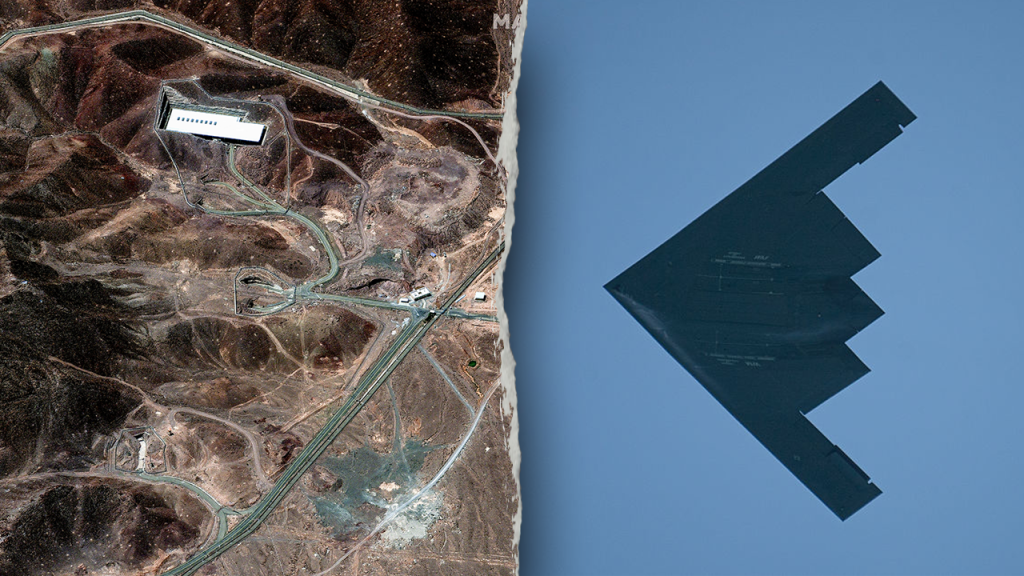In a significant escalation of tensions, Russia’s United Nations ambassador, Vassily Nebenzia, publicly condemned the recent airstrikes conducted by the Trump administration on Iran. During an emergency meeting of the UN Security Council, Nebenzia warned that these actions could open a “Pandora’s box” and potentially result in a global nuclear disaster. He described the U.S. strikes as irresponsible and dangerous, asserting that they pose serious threats not just to Iran, but to international security as a whole.
| Article Subheadings |
|---|
| 1) Russian Response to U.S. Airstrikes |
| 2) Details of the Airstrikes |
| 3) Implications for International Relations |
| 4) The Role of the International Atomic Energy Agency (IAEA) |
| 5) Future Projections and Conflict Scenarios |
Russian Response to U.S. Airstrikes
The emergency session of the UN Security Council was convened following the airstrikes which targeted Iran’s nuclear facilities. Vassily Nebenzia, Russia’s UN ambassador, emphatically condemned these strikes, stating, “The U.S. has opened Pandora’s box, and no one knows what new consequences this may lead to.” He labeled the U.S. actions as reckless and called for immediate de-escalation to prevent the Middle East from slipping into a larger conflict. This perspective aligns with Russia’s consistent approach of seeking diplomatic resolutions while critiquing Western military interventions, which are perceived as exacerbating tensions in already volatile regions.
Details of the Airstrikes
The U.S. airstrikes on Iran took place during an operation dubbed “Midnight Hammer,” hitting key nuclear sites including Fordow, Natanz, and Isfahan. These strikes were conducted using advanced stealth B-2 bombers and included the deployment of cruise missiles. The Iranian facilities targeted are believed to be crucial for the country’s nuclear weapon development ambitions. U.S. officials confirmed that ground-penetrating munitions were specifically used at the Natanz site, indicating a focus on deeply underground installations that are difficult to damage with conventional munitions. The strikes have caused severe destruction, escalating tensions not just in the Middle East but also affecting global diplomatic relations.
Implications for International Relations
The ramifications of these strikes are profound, as they may alter the geopolitical landscape in the Middle East. Nebenzia emphasized that the U.S.’s unilateral actions threaten to destabilize the entire region and could bring about a nuclear arms race. Diplomatic avenues for conflict resolution appear to be closing rapidly, with Russia calling on all countries involved to exercise restraint. The actions have the potential to drive a wedge between U.S. allies and adversaries, leading to a reevaluation of existing security agreements. Other nations may now feel compelled to bolster their own military capabilities or enter new alliances as a direct counter to U.S. interventionist policies.
The Role of the International Atomic Energy Agency (IAEA)
The International Atomic Energy Agency (IAEA) has also weighed in on the situation, with Director General Rafael Grossi indicating that the damage at Fordow is expected to be significant due to the nature of the munitions used. He highlighted the concerns regarding the ramifications for nuclear safety and global security. The IAEA stated that Iran reported no increase in off-site radiation levels following the strikes, yet the operational integrity of these nuclear sites remains in question. The agency is now likely to enhance its monitoring efforts to ensure full transparency moving forward, considering the stakes involved in potential nuclear proliferation.
Future Projections and Conflict Scenarios
The future outlook remains grim, with many analysts predicting the possibility of retaliatory measures from Iran or its allies in the region. The strikes have not only heightened military readiness among Iranian forces but may also provoke new actions among marginalized militant groups. As indicated in the remarks by Vassily Nebenzia, the Middle East is teetering on the brink of larger-scale conflict. A multi-faceted approach involving diplomacy and dialogue seems increasingly unlikely as tensions escalate. The need for a balanced approach that considers the security concerns of all parties will be critical in averting further escalations.
| No. | Key Points |
|---|---|
| 1 | Russia condemns U.S. airstrikes on Iran, calling for diplomacy. |
| 2 | The U.S. military operation targeted significant nuclear sites in Iran. |
| 3 | The IAEA reports potentially severe damage to Iranian nuclear facilities. |
| 4 | Escalation of tensions could lead to a nuclear arms race in the region. |
| 5 | Calls for restraint and renewed diplomatic efforts from various nations. |
Summary
The U.S. airstrikes on Iranian nuclear facilities have triggered a robust international backlash, particularly from Russia, raising fears of a broader conflict in the Middle East. As various stakeholders including the IAEA highlight the potential consequences of these military actions, the pressing need for renewed diplomacy has never been clearer. The unfolding situation serves as a reminder of the delicate balance of power in international relations and the inherent risks of military interventions without comprehensive strategic foresight.
Frequently Asked Questions
Question: What were the aims of the U.S. airstrikes on Iranian nuclear sites?
The U.S. aimed to degrade Iran’s nuclear capabilities and deter further advancements in its nuclear program by targeting key facilities.
Question: How did Russia react to the U.S. strikes?
Russia’s UN ambassador condemned the airstrikes as reckless and warned of severe repercussions, urging for immediate diplomatic engagement to resolve the crisis.
Question: What role does the IAEA play in this conflict?
The IAEA monitors Iran’s nuclear activities to ensure compliance with international regulations, and it has expressed concern about the damage inflicted on its sites during the airstrikes.


